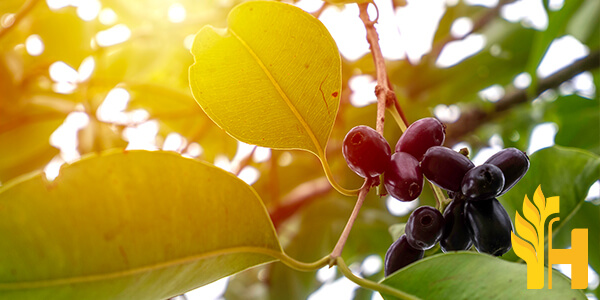Jambolan price

Where to buy and sell Jambolan, lowest (cheapest) and highest price.
check offers buy sell JambolanToday price for JambolanJambolan wholesale prices 2022
The Current commodity price of Jambolan per kg, pound in the world in the global markets
Jambolan
The fruit of ambulance has been used in Ayurvedic medicine for diabetes mellitus. In the Indian state of Kerala, a decoction of the leaves is still in common use to treat colds and sore throats. Jambolan fruit is commonly made into a jam or eaten raw in some regions. This fruit is known by other names in India, including "kodumpulli" in Malayalam, or "kodumpuli thanni" (fruit for making jam) "kolaambu thanni" (small fruit for making jam), and "kodumpuli thanni thanni" (fruit to make jam). Jambolan is also used in traditional medicine as an anti-rheumatic. It has been used traditionally by the people of the Indian subcontinent to treat diabetes, dysentery, fever, and cough. The seeds of an Indian species of ambulance were said to be roasted in grease by the Kapuas Hulu people of Indonesia, before being mixed with coffee or consumed directly as medicine. Jambolan is a tree. The seed, leaf, bark, and fruit are used to make medicine. Jambolan is widely used in folk medicine for diabetes. It has been suggested that jambolan may have effects on the liver and blood cells. However, there is no evidence from high-quality human research to support this use. Jambolan is sometimes used for sore throat and applied directly to the skin for skin ulcers. Jambolan seed powder has been studied in rats for its effects on blood sugar, insulin levels, cholesterol, hemoglobin, liver function tests (LFTs), kidney function tests (KFTs), fatty acids, adrenocorticotropic hormone (ACTH), and lipid profiles. One study found jambolan seed powder lowered blood sugar in rats fed a high-sucrose diet, but did not affect normal rats, while another study using an extract of jambolan found that it failed to lower blood sugar levels or weight gain in diabetic mice. Jambolan is used for increasing appetite. It can also be used to relieve respiratory and urinary tract infections and bacterial skin diseases, and the fruit pulp is considered a laxative. Other uses include the treatment of leprosy, ringworm, skin problems such as eczema and psoriasis, intestinal worms, bronchitis, asthma, tuberculosis, and as a laxative. It can also be used topically for ringworm, eczema, psoriasis, ulcers, wounds, dermatitis, diabetes mellitus, leprosy, infections of the female reproductive tract (vaginitis), fungal skin infections such as athlete's foot, jock itch, vaginal yeast infection, oral thrush, cold sores (herpes simplex), diaper rash, and shingles.Global jambolan production
The jambolan tree is native to the Indian subcontinent and Southeast Asia. It is widely cultivated in these regions, as well as in Brazil, China, Africa, and the Caribbean. The fruit of the jambolan tree is fleshy and purple-black in color. It has a large seed inside that is covered with a hard, dark brown shell. The jambolan fruit is sweet and tangy, with a flavor that has been likened to a cross between a plum and a grape. The tree grows best in tropical climates, and the fruit is typically harvested between December and February. In 2019, jambolan production is expected to reach 6.5 million metric tons (MMT) globally, led by increases in India, Indonesia, and Vietnam. The global area harvested for jambolan is forecast at 2.6 million hectares (ha), up slightly from 2018. Global yield is forecast at 2.5 metric tons per hectare (MT/ha), down fractionally from the previous year. The majority of jambolan production is concentrated in three countries: India, Indonesia, and Vietnam. In 2019, these countries are forecast to produce a combined 5.2 MMT of jambolan fruit, or 80 percent of global production. India is by far the largest producer of jambolan, with an estimated 3.5 MMT in 2019. India’s production is forecast to increase slightly from 2018, as higher yields offset a small decrease in area harvested. Indonesia is the second-largest producer of jambolan, with an estimated 1.4 MMT in 2019. Production in Indonesia is forecast to increase slightly from the previous year, as higher yields more than offset a small decrease in the area harvested. Vietnam is the third-largest producer of jambolan, with an estimated 0.4 MMT in 2019. Vietnam’s production is forecast to increase slightly from 2018, as higher yields more than offset a small decrease in area harvested. Other major jambolan-producing countries include Thailand, Pakistan, Brazil, and the Philippines. These countries are forecast to produce a combined 1.3 MMT of jambolan fruit in 2019. The majority of jambolan production is used for fresh consumption. In 2019, an estimated 4.5 MMT of jambolan fruit will be consumed fresh, or 69 percent of global production. The second-largest use for jambolan is processing, where the fruit is used to make juice, jam, and other processed products. In 2019, an estimated 1.6 MMT of jambolan fruit will be used for processing, or 24 percent of global production. The remainder of jambolan production is used for animal feed and other uses.Download our new
Husfarm App
Stay up to date with the current prieces of agricultural products all over the world.
Do you want to sell agricultural products?
Are you an Agricultural processor looking for high-quality products to buy?
Post an ad for FREE!
